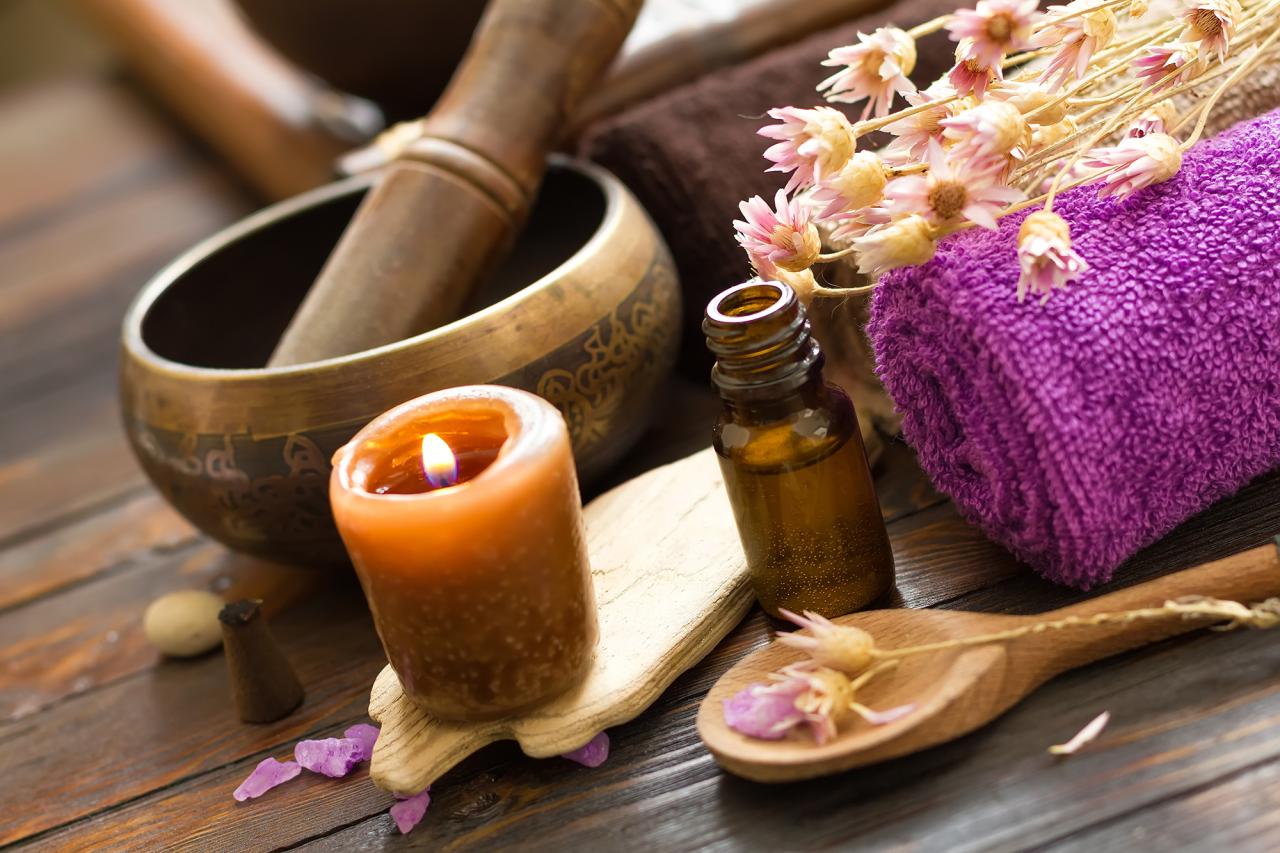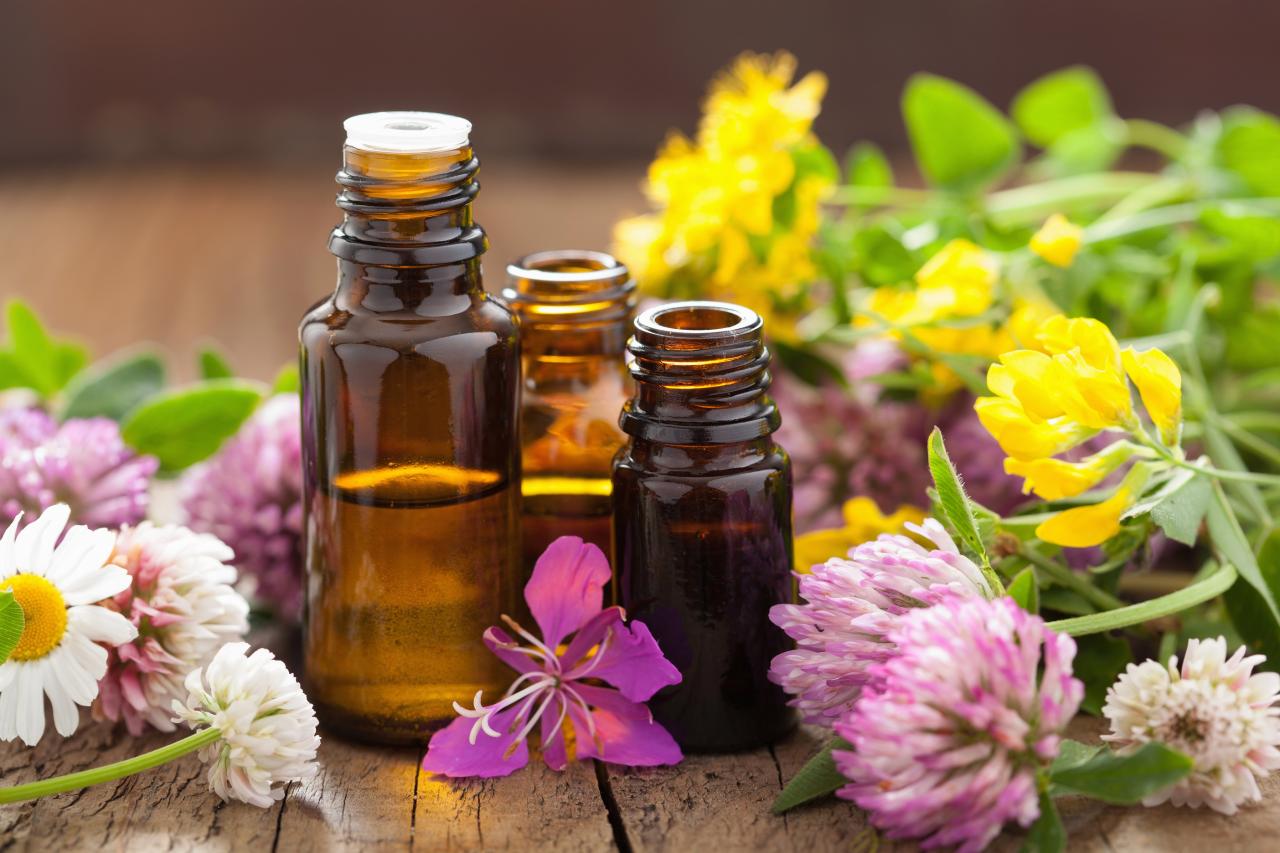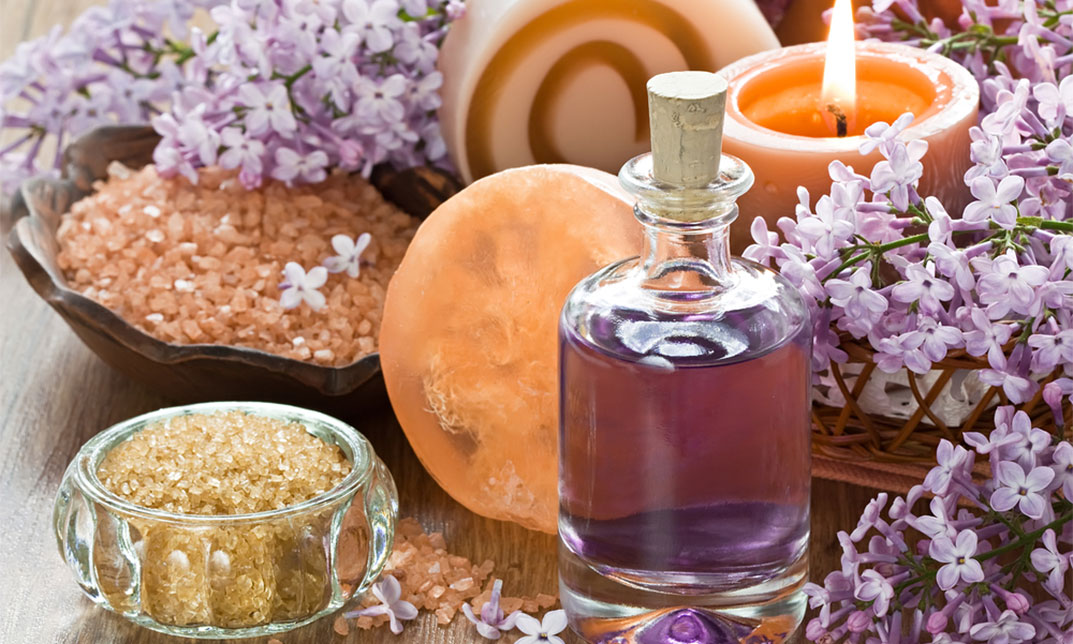Step into the realm of aromatherapy, where the symphony of scents weaves its magic, enchanting our senses and unlocking a world of well-being. Join us as we explore the depths of aromatherapy meaning, tracing its ancient roots and delving into its transformative power to heal, soothe, and revitalize.
Aromatherapy, a practice that harnesses the therapeutic properties of essential oils, has captivated cultures across time and continents. Its essence lies in the belief that certain scents, when inhaled or applied topically, can influence our physical, emotional, and spiritual well-being.
Definition and Overview of Aromatherapy
Aromatherapy is a holistic therapy that utilizes the aromatic compounds of plants, known as essential oils, to enhance physical, emotional, and mental well-being. Its roots can be traced back to ancient civilizations, where fragrant plants and herbs were used for medicinal and spiritual purposes.
Aromatherapy is based on the principle that inhaled or absorbed essential oils interact with the body’s olfactory system, triggering physiological and psychological responses. These responses can range from relaxation and stress reduction to improved sleep and boosted immunity.
Methods of Aromatherapy
Aromatherapy can be practiced through various methods, including:
- Inhalation:Inhaling essential oils directly from a bottle, diffuser, or humidifier allows their molecules to enter the respiratory system and reach the olfactory bulb.
- Topical application:Diluted essential oils can be applied to the skin through massage, baths, or compresses, allowing them to penetrate the skin and interact with local tissues.
- Diffusion:Using an electric or candle-based diffuser releases essential oils into the air, creating an aromatic atmosphere that can be inhaled and absorbed through the skin.
Essential Oils and Their Properties
Essential oils are concentrated plant extracts that capture the volatile compounds responsible for a plant’s scent and therapeutic properties. These oils are obtained through various extraction methods and are widely used in aromatherapy for their physical, emotional, and spiritual benefits.
Essential oils are composed of a complex blend of chemical compounds, including terpenes, alcohols, esters, and ketones. These compounds interact with the body’s receptors and enzymes, influencing various physiological and psychological processes.
Types of Essential Oils
- Citrus Oils:Extracted from citrus fruits, these oils are known for their uplifting and energizing properties. Examples include lemon, orange, and grapefruit.
- Floral Oils:Derived from flowers, these oils often possess calming and relaxing effects. Examples include lavender, rose, and jasmine.
- Herbaceous Oils:Obtained from herbs, these oils are commonly used for their stimulating and invigorating properties. Examples include rosemary, peppermint, and eucalyptus.
- Woodsy Oils:Extracted from trees and shrubs, these oils are known for their grounding and stabilizing effects. Examples include cedarwood, sandalwood, and frankincense.
- Spicy Oils:Derived from spices, these oils are characterized by their warming and stimulating properties. Examples include cinnamon, clove, and ginger.
Extraction Methods
Essential oils can be extracted using various methods, including:
- Steam Distillation:The most common method, where plant material is exposed to steam to release essential oils.
- Cold Pressing:Used for citrus oils, where the oils are extracted by mechanically pressing the fruit peel.
- Solvent Extraction:Involves using solvents to dissolve essential oils from plant material.
Quality Considerations
When choosing essential oils, it is important to consider their quality and purity. Factors to consider include:
- Botanical Source:Ensure the oils are derived from the correct plant species.
- Extraction Method:Choose oils extracted using reputable methods that preserve their therapeutic properties.
- Organic Certification:Look for oils certified organic to avoid exposure to pesticides and chemicals.
- Batch Testing:Verify that the oils have been tested for purity and quality by reputable third-party organizations.
Health and Wellness Benefits of Aromatherapy

Aromatherapy has gained widespread recognition for its therapeutic properties, offering a range of health and wellness benefits. Extensive research has demonstrated the efficacy of aromatherapy in addressing various physical and mental health conditions.
The therapeutic effects of aromatherapy are attributed to the interaction of volatile compounds present in essential oils with the body’s physiological systems. These compounds, when inhaled or applied topically, can stimulate or inhibit specific neural pathways, influencing mood, cognitive function, and physical well-being.
Stress and Anxiety Reduction
Numerous studies have shown that aromatherapy can effectively reduce stress and anxiety levels. Essential oils such as lavender, chamomile, and bergamot have calming and sedative effects, helping to alleviate tension, promote relaxation, and improve sleep quality.
- A study published in the Journal of Alternative and Complementary Medicine found that inhaling lavender oil significantly reduced anxiety levels in patients undergoing dental procedures.
- Another study, published in the International Journal of Nursing Practice, demonstrated that aromatherapy with chamomile oil reduced stress and improved sleep quality in elderly patients.
Pain Management
Aromatherapy has shown promise in alleviating pain and discomfort associated with various conditions. Essential oils such as peppermint, eucalyptus, and rosemary possess analgesic and anti-inflammatory properties.
- A study published in the Journal of Pain and Symptom Management found that applying peppermint oil to the temples reduced headache severity and frequency.
- Another study, published in the journal Phytotherapy Research, demonstrated that eucalyptus oil aromatherapy was effective in reducing postoperative pain in patients.
Sleep Disorders
Aromatherapy can aid in improving sleep quality and duration. Essential oils such as lavender, valerian root, and ylang-ylang have sedative and calming effects, helping to promote relaxation and induce sleep.
- A study published in the journal Sleep found that inhaling lavender oil before bedtime improved sleep quality and reduced sleep latency.
- Another study, published in the journal Phytomedicine, demonstrated that valerian root aromatherapy was effective in reducing insomnia symptoms and improving sleep efficiency.
Safety Considerations and Contraindications

While aromatherapy offers numerous benefits, it is essential to be aware of potential risks and contraindications associated with its use. Proper dilution and usage guidelines are crucial to ensure a safe and effective experience.
Certain essential oils may pose risks during pregnancy, breastfeeding, or for individuals with specific medical conditions. It is always advisable to consult a qualified healthcare professional before using essential oils, especially if you have any underlying health concerns.
Dilution and Usage Guidelines
- Always dilute essential oils in a carrier oil, such as jojoba or coconut oil, before applying them to the skin.
- Follow the recommended dilution ratios, typically 2-3% for adults and 1% or less for children.
- Avoid applying undiluted essential oils directly to the skin, as this can cause irritation or allergic reactions.
Essential Oils to Avoid During Pregnancy
- Clary sage
- Hyssop
- Juniper berry
- Marjoram
- Pennyroyal
- Rosemary
- Sage
- Wintergreen
Essential Oils to Avoid While Breastfeeding
- Clary sage
- Fennel
- Juniper berry
- Marjoram
- Pennyroyal
- Rosemary
- Sage
- Wintergreen
Essential Oils to Avoid for Individuals with Certain Medical Conditions
Consult a healthcare professional for specific guidance, as certain essential oils may interact with medications or worsen certain medical conditions. For example:
- Individuals with epilepsy should avoid using essential oils that can stimulate the nervous system, such as rosemary and eucalyptus.
- Individuals with high blood pressure should avoid using essential oils that can increase blood pressure, such as clary sage and cinnamon.
Applications and Uses of Aromatherapy
Aromatherapy finds versatile applications in various settings, offering a myriad of benefits. From creating a relaxing atmosphere at home to enhancing focus in the workplace, aromatherapy has proven its efficacy in diverse contexts.
Incorporating aromatherapy into daily life can be both creative and practical. Here are some effective ways to experience its benefits:
Home
- Diffusion:Using an essential oil diffuser is a popular method to disperse aromatic molecules into the air, creating a fragrant and therapeutic atmosphere.
- Bathing:Adding a few drops of essential oils to bathwater can transform it into a relaxing or invigorating spa-like experience.
- Topical Application:Diluting essential oils with a carrier oil (such as jojoba or coconut oil) allows for direct application to the skin for targeted benefits.
Office
- Desk Diffuser:A small diffuser on your desk can provide a subtle and uplifting scent to enhance focus and concentration.
- Inhaler:Keep a personal inhaler with you to inhale essential oils as needed for a quick burst of energy or relaxation.
- Aromatherapy Jewelry:Wearing aromatherapy jewelry, such as a diffuser necklace or bracelet, allows you to carry the benefits of essential oils with you throughout the day.
Spa
- Massage:Essential oils can be incorporated into massage oils for a relaxing and therapeutic experience.
- Facials:Aromatherapy can enhance facials by providing deep cleansing, hydration, and anti-aging benefits.
- Body Treatments:Essential oils can be added to body scrubs, wraps, and other spa treatments for a luxurious and rejuvenating experience.
Specific Blends for Different Purposes
- Relaxation:Lavender, chamomile, and bergamot are known for their calming and relaxing properties.
- Focus:Rosemary, peppermint, and lemon are energizing and stimulating, promoting concentration and alertness.
- Sleep:Vetiver, valerian root, and ylang-ylang can aid in relaxation and promote restful sleep.
Ultimate Conclusion

Our journey into aromatherapy meaning has unveiled the profound impact of scents on our lives. From ancient healing practices to modern-day wellness routines, the power of aromatherapy continues to astound. As we embrace the transformative embrace of essential oils, let us harness their aromatic wisdom to enhance our well-being and create a life infused with harmony and vitality.